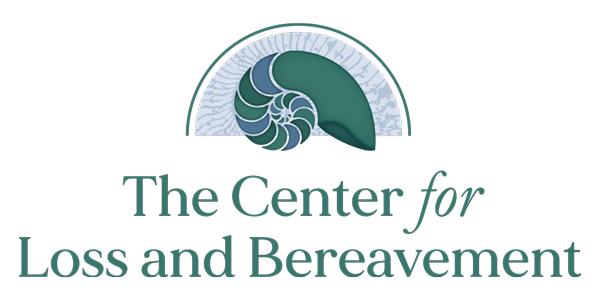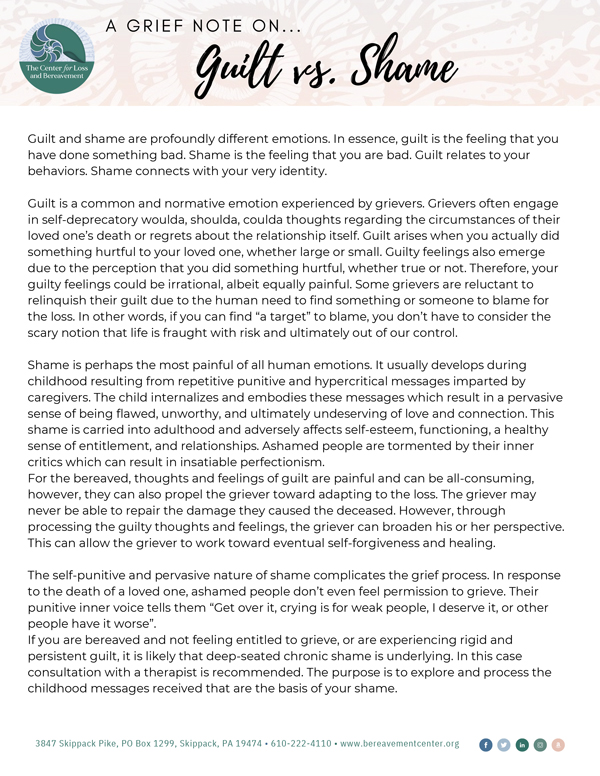CLB Grief Notes
A Grief Note On…
Guilt vs. Shame
Guilt and shame are profoundly different emotions. In essence, guilt is the feeling that you have done something bad. Shame is the feeling that you are bad. Guilt relates to your behaviors. Shame connects with your very identity.
Guilt is a common and normative emotion experienced by grievers. Grievers often engage in self-deprecatory woulda, shoulda, coulda thoughts regarding the circumstances of their loved one’s death or regrets about the relationship itself. Guilt arises when you actually did something hurtful to your loved one, whether large or small. Guilty feelings also emerge due to the perception that you did something hurtful, whether true or not. Therefore, your guilty feelings could be irrational, albeit equally painful. Some grievers are reluctant to relinquish their guilt due to the human need to find something or someone to blame for the loss. In other words, if you can find “a target” to blame, you don’t have to consider the scary notion that life is fraught with risk and ultimately out of our control.
Shame is perhaps the most painful of all human emotions. It usually develops during childhood resulting from repetitive punitive and hypercritical messages imparted by caregivers. The child internalizes and embodies these messages which result in a pervasive sense of being flawed, unworthy, and ultimately undeserving of love and connection. This shame is carried into adulthood and adversely affects self-esteem, functioning, a healthy sense of entitlement, and relationships. Ashamed people are tormented by their inner critics which can result in insatiable perfectionism.
For the bereaved, thoughts and feelings of guilt are painful and can be all-consuming, however, they can also propel the griever toward adapting to the loss. The griever may never be able to repair the damage they caused the deceased. However, through processing the guilty thoughts and feelings, the griever can broaden his or her perspective. This can allow the griever to work toward eventual self-forgiveness and healing.
The self-punitive and pervasive nature of shame complicates the grief process. In response to the death of a loved one, ashamed people don’t even feel permission to grieve. Their punitive inner voice tells them “Get over it, crying is for weak people, I deserve it, or other people have it worse”.
If you are bereaved and not feeling entitled to grieve, or are experiencing rigid and persistent guilt, it is likely that deep-seated chronic shame is underlying. In this case consultation with a therapist is recommended. The purpose is to explore and process the childhood messages received that are the basis of your shame.
Join Our
Mailing List
Donate
Today
Request
Information

Affiliations
• NACG
• CBEM Changemaker
• ADEC
• Charity Navigator
Quick Links
About Us
Individual & Family Grief Counseling
Volunteer
News
Grief Support Resources
Contact
Ph: 610-222-4110
Fax: 610-222-4116
3847 Skippack Pike
P.O. Box 1299
Skippack, PA 19474
Support The Center For
Loss and Bereavement
